
by Stemedix | Apr 11, 2022 | Parkinson's Disease, Mesenchymal Stem Cells, Stem Cell Therapy
Regenerative medicine, also known as stem cell therapy, is emerging as a viable treatment for Parkinson’s disease as clinical trials move through the FDA approval process. Patients in clinical trials see positive results from mesenchymal stem cell therapy for Parkinson’s Disease.
What Is Parkinson’s Disease?
Parkinson’s disease is a progressive, neurodegenerative condition. It occurs when dopamine-producing brain cells stop working or die. Dopamine’s role in the body is to send messages between nerve cells or from nerve cells to muscle cells, affecting the body’s physical and mental functions.
Symptoms of Parkinson’s start gradually, and the disease worsens over time. Early symptoms include tremors in the hands, rigidity, and slowness of movement. Patients with Parkinson’s also experience difficulty with balance, and eventually, with speech, writing, and automatic muscle movement such as blinking.
While there’s currently no cure for Parkinson’s, there are medications that patients can take to manage symptoms. Some symptoms are also relieved from surgery to regulate specific brain areas.
Patients with Parkinson’s disease experience a progressive decline in their ability to function, with treatments only offering some relief. The emergence of mesenchymal stem cell therapy as an option to reverse the damage and halt the progression of Parkinson’s disease is an exciting development.
What Are Mesenchymal Stem Cells?
Stem cells are considered to be the building blocks of cells. All specialized cells in the body come from stem cells. When stem cells divide, they either produce more stem cells, called daughter cells, or differentiate into specialized cells, such as bone, blood, or brain cells.
Mesenchymal stem cells (MSCs) are adult stem cells commonly found in bone marrow. They also exist in adipose (fat), umbilical cord tissue, amniotic fluid, and other locations. MSCs remain dormant in the bone marrow until they’re needed to facilitate healing in the body.
MSCs differentiate into:
- Bone cells
- Muscle cells
- Skin cells
- Cartilage
- Neural cells
- Corneal cells
MSCs are present throughout your life, but they age as the body ages, making them less effective and concentrated over time.
How Can Mesenchymal Stem Cells Benefit Those with Parkinson’s Disease?
In recent clinical trials using mesenchymal stem cells on Parkinson’s patients, the cells significantly improved patients’ symptoms, including facial expressions, gait, and rigidity or “freezing” episodes. Some of the patients in this study substantially reduced their dosages of medicines used to control Parkinson’s symptoms.
In a 2005 study, researchers determined that stem cells may be capable of differentiating into dopamine neurons, which are damaged or destroyed with Parkinson’s.
While the true potential of mesenchymal stem cell benefits in Parkinson’s patients is still being investigated, there is reason to believe that patients with the neurodegenerative condition could experience a significant improvement in their quality of life with stem cell therapy. If you are interested in learning more about Mesenchymal Stem Cell Therapy for Parkinson’s Disease, contact us today at Stemedix!

by admin | Apr 1, 2022 | Stem Cell Therapy, Adipose, Mesenchymal Stem Cells, Musculoskeletal, Wharton's Jelly
Articular cartilage, found on the surface of most musculoskeletal joints, distributes and transfers forces between bones and joints, provides a smooth surface for joint mobility, and plays an important role in human mobility.
However, articular cartilage is also easily susceptible to damage, but difficult to repair itself on its own (primarily due to the fact it is mostly avascular). Over time, the inability of articular cartilage to repair itself leads to progressive joint pain, disfigurement, movement disorders, and ultimately osteoarthritis.
The CDC estimates that nearly 33 million Americans are currently affected by osteoarthritis, most often in the form of pain, stiffness, decreased mobility and range of motion, and swelling in the joints[1].
Current treatment methods, including microfracture technology, autologous or allogeneic cartilage transplantation, and autologous chondrocyte implantation (ACI) have demonstrated the ability to repair and regenerate fibrous cartilage, but not articular cartilage required for smooth, fluid, natural mobility.
To address this issue, recent research has focused on the efficacy of stem cells, and specifically mesenchymal stem cells (MSCs) found in bone marrow, adipose tissue, synovial membrane, and umbilical cord Wharton’s jelly, as potential therapeutic treatments for regeneration of articular cartilage. MSCs are particularly of interest due to their demonstrated abilities of self-renewal, multi-differentiation, and immunoregulation.
While the use of MSCs has demonstrated tremendous potential in the field of regenerative therapy, one notable drawback continues to be unstable or suboptimal results resulting from the heterogeneity of various mesenchymal stem cells.
Specifically, the stability and efficacy of MSCs appear to differ based on a number of factors, including the donor, the tissue source, and their ability for proliferation, differentiation, and immunoregulation.
For example, some of the key heterological differences highlighted in this review include the efficacy of MSCs based on donor’s age (with younger donors providing higher quality MSCs), Wharton’s Jelly MSCs showing greater prospects for application in cartilage regeneration than other MSCs, and differences within specific MSC subpopulations.
The authors of this review acknowledge the potential of MSCs in repairing arterial cartilage, but also point out that there needs to be a deeper understanding of the heterogeneity of various MSCs in order to improve the efficiency of MSC-based therapies designed to repair arterial cartilage. In addition, the authors also call for greater standardization in MSC isolation and harvesting methods among laboratories in order to provide better consistency with respect to results obtained from studies using MSCs.
Source: “Heterogeneity of mesenchymal stem cells in cartilage regeneration.” 19 Mar. 2021, https://www.nature.com/articles/s41536-021-00122-6?elqTrackId=5517bd20493b470cb34fd0e8bc1f6ef9.
[1] “Osteoarthritis (OA) | Arthritis | CDC.” https://www.cdc.gov/arthritis/basics/osteoarthritis.htm.

by admin | Mar 25, 2022 | Mesenchymal Stem Cells, Neurodegenerative Diseases, Stem Cell Research, Stem Cell Therapy
Neurodegenerative conditions such as Alzheimer’s disease (AD), Parkinson’s disease (PD), and amyotrophic lateral sclerosis (ALS) occur when neuron populations begin to diminish. There is currently no cure for these types of diseases, though clinical trials to explore various treatment options are ongoing. In particular, regenerative medicine, also known as stem cell therapy, is being heavily researched and has shown remarkable progress in controlling these conditions.
Types of Stem Cells
Stem cells serve as the foundation for every tissue and organ throughout the body. They are unspecialized but have the incredible ability to differentiate into virtually any cell type, as well as the power to self-renew.
Neurodegenerative conditions are characterized by neurons that progressively lose their function and structure, and eventually die off. Because stem cells are able to differentiate into multiple cell types, researchers have begun exploring whether they could replace or repair damaged neurons to control the progression of, or potentially even reverse the damage done by, these illnesses. Existing treatment options are limited, but many researchers are optimistic about stem cells’ potential.
Not all stem cells are the same. Here are the various types, some of which show more efficacy as a treatment for neurodegenerative disease than others:
- Tissue-specific stem cells: These somewhat specialized stem cells can generate multiple organ-specific cells and are typically located in areas of the body that can self-replenish, such as the skin and blood.
- Embryonic stem cells (ESCs): Located in blastocysts, ESCs are especially promising in neurodegenerative applications. Yet, they do pose some risks, including the risk of rejection. Due to their ability to differentiate into neurons, however, they continue to be studied as a potential therapy.
- Induced Pluripotent Stem Cells (iPSCs): iPSCs are artificially derived from adult cells and programmed back to pluripotency, thereby allowing for an unlimited source of any cell type. While they are widely used for developing medications and disease modeling, further research must be done to refine the reprogramming process.
- Mesenchymal Stem Cells (MSCs): MSCs can differentiate into several types of cells. Their self-renewal capabilities are far-reaching, making them an ideal candidate for therapies involving tissue repair. They may also be leveraged for cell transplantation in the treatment of neurodegenerative diseases.
- Neural Stem Cells (NSCs): NSCs are derived from specific areas of the brain and are therefore specialized cells. They, too, are self-renewing and multipotent.
Types of Neurodegenerative Conditions Regenerative Medicine can Help Manage:
While researchers are uncovering new findings on how stem cells can treat neurodegenerative conditions nearly every day, there has already been progress. Here are some of the conditions stem cell therapy has been used to manage:
- Parkinson’s Disease (PD): One hallmark characteristic of PD is the decline of dopamine, caused by the destruction of dopamine-producing brain cells. As dopamine decreases, symptoms such as muscle tremors, challenges with movement, and difficulty thinking arise. Now, researchers have found that stem-cell-derived dopaminergic neurons — in particular, those created through ESCs and iPSCs — could hold success in replacing the destroyed brain cells in individuals with PD.
- Alzheimer’s Disease: Through the use of stem cell therapy, researchers at Columbia University have refined the protocol for a unique process of converting skin cells into brain cells. This option streamlines the process of creating neurons to replace those which have become damaged by Alzheimer’s disease. In their research, the cells were able to receive signals just as normal neurons would.
- ALS: ALS has proven remarkably challenging to study, as there are many potential causes and therapies may therefore only be effective on specific patient populations. Moreover, the motor neurons, which are directly impacted by the condition, couldn’t be acquired in large enough numbers to study. Now, however, Harvard researchers have been able to derive mature cells that can be manipulated back into stem cells from ALS patients, opening up new doors for studying potential therapies to treat the condition.
While there is more ground to cover before stem cell therapy for neurodegenerative conditions can become mainstream, promising research is consistently being published. Moving forward, it’s likely that stem cells will hold the answer to viable management options for these and other challenging conditions.

by Stemedix | Mar 21, 2022 | Stem Cell Therapy, Autoimmune, Mesenchymal Stem Cells
For decades, autoimmune diseases such as Lupus, Rheumatoid Arthritis, and chronic obstructive pulmonary disease (COPD) have posed a major challenge to researchers and healthcare providers. While medical interventions have evolved tremendously in the last few decades, these serious conditions remain notoriously difficult to treat. Here we talk about Stem Cell for Autoimmune Diseases, Specifically Mesenchymal stem cells!
Fortunately, mesenchymal stem cells may be a potentially effective treatment option for many patients suffering from various autoimmune conditions. While the efficacy of this intervention varies depending on unique patient factors, individuals who have had little to no success with traditional interventions may find it useful to consider MSC therapy.
What Are MSCs?
Mesenchymal stem cells are a special type of cell that can transform into other types of cells. MSCs can become specialized cells such as those that form muscular tissue, cartilage, and many others. MSCs can be harvested from many different locations, including bone marrow, adipose (fat) tissue, and the Wharton’s Jelly within umbilical cords.
Once harvested, MSCs can be administered to help manage various conditions and their symptoms. MSCs are typically administered through a systemic application into the blood system. However, they can also be directly administered to have a more targeted impact on a specific area depending on the patient’s case.
Can MSCs Be Used to Treat Autoimmune Diseases?
While MSCs are still being studied, research has indicated that MSCs can be an effective intervention for many different autoimmune conditions, including COPD.
Specifically, mesenchymal stem cells have been effective at treating chronic inflammation, which is a common symptom in many autoimmune patients.
However, every case and patient is unique. Therefore, treatment decisions should be made with the guidance of a licensed medical professional. An experienced care provider can thoroughly review your medical history and condition to help you select the best treatment plan for your needs.
Potential Benefits of Stem Cell for Autoimmune Diseases MSCs
Mesenchymal stem cells have the unique potential to reduce inflammation in individuals suffering from an autoimmune disease, such as Lupus or Rheumatoid Arthritis. There is a correlation between a reduction in inflammation and improvements in other disease symptoms. However, the strength of this correlation is still being researched.
With that being said, MSCs may reduce the severity of many common autoimmune symptoms, including pain and fatigue.
Although research is still in progress, mesenchymal stem cell therapy has shown promise for patients looking for an alternative option. With new advancements in medical tools and therapeutic methodologies, patients who suffer from autoimmune disorders may soon have more options for relief than ever before. If you are interested in learning more about Stem Cell for Autoimmune Diseases, contact us today and speak with a care coordinator!

by admin | Jan 21, 2022 | Stem Cell Therapy, Mesenchymal Stem Cells, Stem Cell Research, Stroke
According to the CDC, stroke continues to be a major cause of serious disability for adults. It is also estimated that nearly 800,000 people in the United States have a stroke each year[1]. While 80% of those experiencing a stroke survive for at least one year following the event, more than 70% will continue to experience long-term disabilities.
Stroke is divided into three distinct phases: acute, subacute, and chronic phases. The acute phase of stroke occurs within 24 hours of the actual ischemic event. The subacute phase starts at 24 hours and lasts up to 3 months. The chronic phase of stroke, by definition, starts at 3 months.
While stroke patients tend to see some response to rehabilitation efforts occurring in the chronic phase, they tend to quickly plateau, leaving many with serious chronic neurological and functional disabilities. To date, there are no approved treatments for the chronic phase of stroke.
For the purposes of this study, Steinberg et al. report the two-year outcomes of their phase 1/2a study examining chronic stroke patients after implantation of mesenchymal stem cells (MSCs). This study specifically examined the outcomes of 18 patients who were at least 6 months post-stroke onset and had chronic motor deficits secondary to the nonhemorrhagic stroke.
At the 1-year point of this study, the authors reported the implantation of bone marrow-derived MSCs (BMD MSCs) was generally safe, well-tolerated, and associated with significant improvement in clinical outcomes.
There were no correlations between improvement in clinical outcomes and cell dose, baseline patient age, or baseline stroke severity. However, two years after implantation of MSCs, those enrolled in this study experienced significant improvement in motor impairment scales as indicated by a number of scores, including the ESS, NIHSS, F-M total, and FMMS scores.
Although all enrolled patients experienced at least one Treatment-Emergent Adverse Event (TEAE), with headache and nausea being the most common, 94.4% of the TEAEs were determined to be unrelated and no one withdrew from the study.
Interestingly, the authors reported that there also appears to be a significant correlation between the size of newly appearing transient lesions primarily in or adjacent to the premotor cortex – a finding that remained consistent at month 12 and month 24 of this study.
While Steinberg et al.’s reported findings are encouraging, the authors point out that the small scale and uncontrolled study design mean the findings should also be interpreted with caution.
Steinberg et al conclude that their findings associated with this completed, open-label, single-arm phase 1/2a study was consistent with the data at the 1-year point and indicated that treatment of chronic stroke with BMD MSCs after 2 years continued to be safe and was associated with sustained and significant improvements in clinical outcomes.
Given the findings of this study, the authors highlight the potential of MCSs, and specifically SB623 cells used in this study, as a potential treatment for patients with chronic ischemic stroke.
Source: “Two-year safety and clinical outcomes in chronic ischemic stroke ….” 23 Nov. 2018, https://pubmed.ncbi.nlm.nih.gov/30497166/.
[1] “Stroke | cdc.gov.” https://www.cdc.gov/stroke/index.htm.

by admin | Jan 7, 2022 | Stem Cell Therapy, Kidney Disease, Mesenchymal Stem Cells, Stem Cell Research
Current estimates indicate that kidney disease currently affects over 37 million US adults and over 10% of the global population[1]. Characterized by gradual loss of function, kidney disease generally progresses over time and culminates in the inability to remove waste and excess fluid from the blood[2].
Often demonstrating little to no symptoms in its early stages, chronic kidney disease tends to demonstrate increasing and dangerous symptoms as the condition advances.
To date, treatment for chronic kidney disease has been centered around causal control as a way of slowing the progression of the condition. However, these therapeutic treatment efforts, including multidrug therapy, have demonstrated an inability to reverse the condition from progressing to end-stage renal disease (ESRD) and requiring additional therapy, dialysis, or kidney transplantation.
Considering the high cost and disruption to normal life function associated with dialysis and the severe shortage of viable kidney donors, neither dialysis nor transplant has proven to be ideal or often recommended treatment strategies. As a result, there has been renewed interest in new and more effective therapeutic options to alleviate, cure, or prevent kidney disease and to improve a patient’s survival and quality of life.
Evaluating the numerous and growing therapeutic applications associated with stem cells’ ability for self-renewal, proliferation, and differentiation, Liu et al.’s review explores the potential benefits offered toward improving renal function and supporting structural repair in those afflicted with kidney disease.
Despite the promising benefits of using stem cells to kidney repair and disease treatment demonstrated through prior preclinical study, the authors point out that certain ethical issues regarding the origin of stem cells, and specifically embryonic stem cells (ESCs) need to be addressed and overcome before clinical application of SCs.
Regardless of the stated drawbacks, Liu et. al concludes that the existing evidence demonstrates that stem cell therapy appears to be a clinically viable alternative for kidney disease, specifically for restoring normal kidney function and for progressing understanding about tissue regeneration, drug screening, and disease modeling.
Although stem cells demonstrate promise in this regard and while the immunomodulatory properties of mesenchymal stem cells (MSCs) appear to make them the most promising SC for treating kidney disease, the authors also point out that further research is needed before definitively concluding which source of SC is best suited for this application.
As a result of this review, and in an effort to realize these findings into clinical applications in the future, the authors call for larger rigorously designed clinical trials to further assist in determining the clinical efficacy of SC therapy in kidney disease – including the appropriate selection of cell types, number of SCs required, and the appropriate route of administration.
Source: “Stem cells: a potential treatment option for kidney diseases.” 25 Jun. 2020, https://stemcellres.biomedcentral.com/articles/10.1186/s13287-020-01751-2.
[1] “Chronic Kidney Disease Basics – CDC.” https://www.cdc.gov/kidneydisease/basics.html.
[2] “Chronic kidney disease – Symptoms and causes – Mayo Clinic.” 3 Sep. 2021, https://www.mayoclinic.org/diseases-conditions/chronic-kidney-disease/symptoms-causes/syc-20354521.
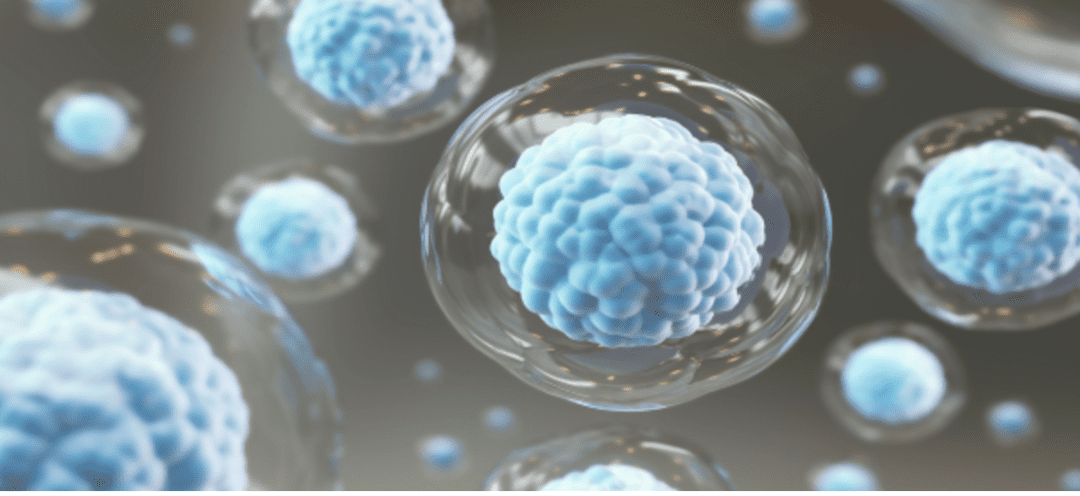

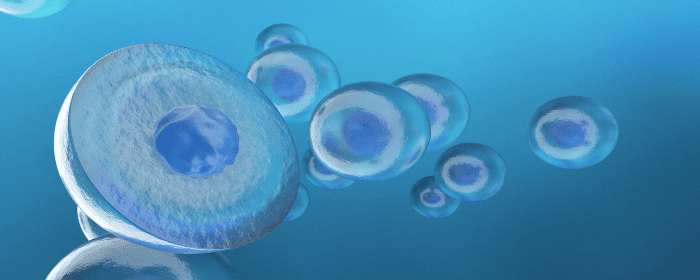
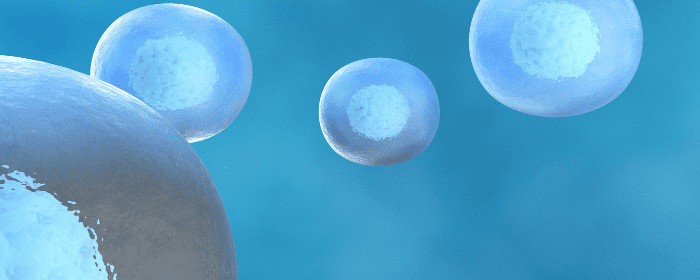
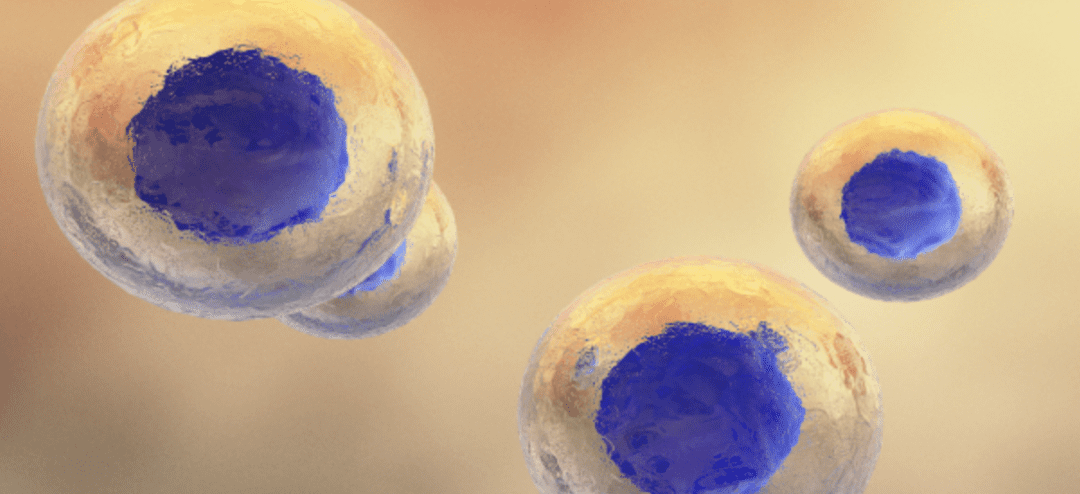
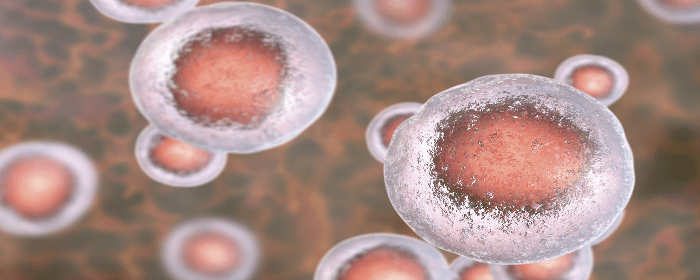
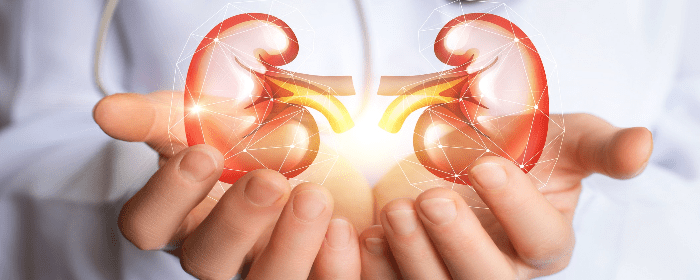
 St. Petersburg, Florida
St. Petersburg, Florida
